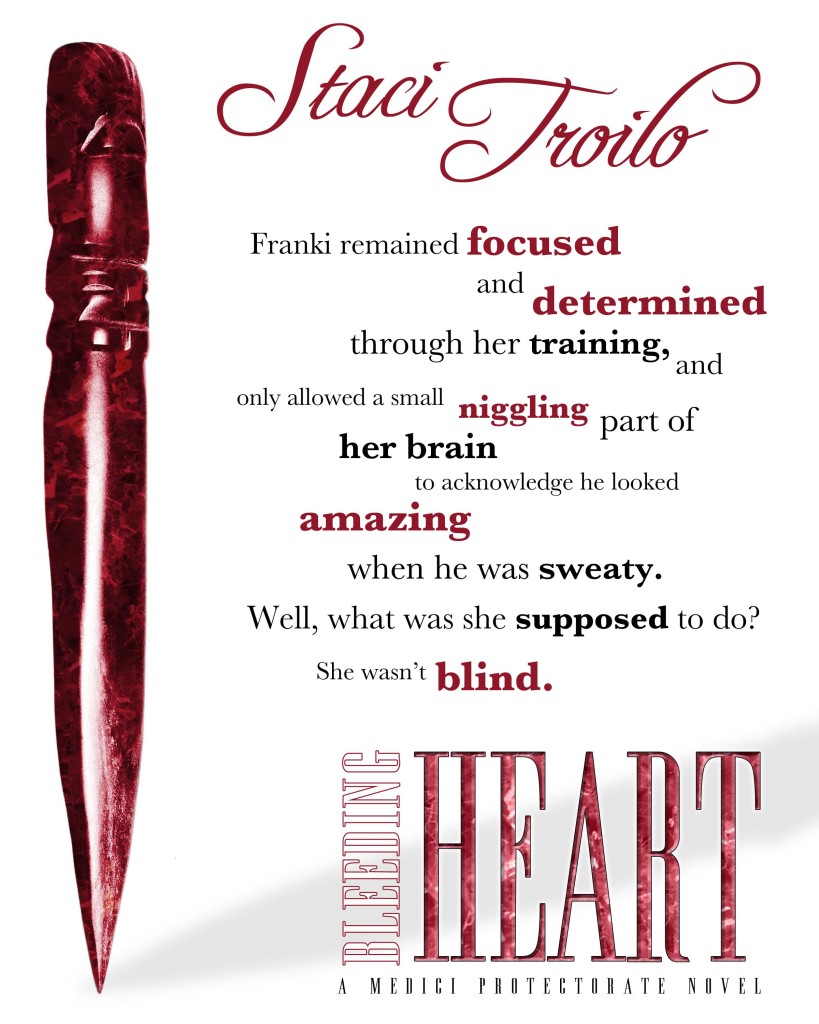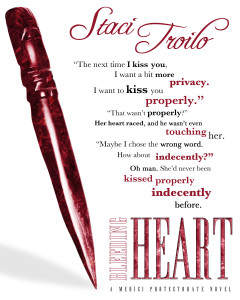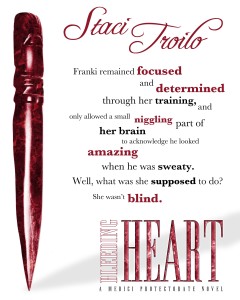Every so often in our lives, we meet people who really have an impact in our lives. With technology the way it is today, our world is “smaller” than ever, and we “meet” people we never actually meet. That’s the case with my guest today.
I “met” Dave Kwiecinski in an online writing group. And he touched my heart and soul from the very first day. Not only is he supportive and funny and wise, he’s one creative guy.
Case in point, today he’s going to share with us what life is like in his world—from his cat’s perspective. Dave is the Big Dog in our writing group, but it sounds like his little cat has him wrapped around her finger… I mean, claw.
Without further ado, I give you Dave. Well; Dave’s cat, anyway.
 Hi. My name is Lady. Well, it’s actually Foxy Lady.
Hi. My name is Lady. Well, it’s actually Foxy Lady.
Well, wait… that’s what it used to be.
Daddy has a strange habit of giving me new names all the time. Right now he calls me Jay.
It’s a long story.
That’s okay. I have lots of stories.
We are always getting into a lot of trouble. Maybe that’s the problem. Maybe Daddy forgets our names. And he has to keep thinking up new ones.
He really doesn’t have to keep thinking up new names. All he needs to do is feed me. But I guess if he keeps feeding me, I don’t care what he calls me.
Daddy asked me to tell you about myself. When I was a little kitten, I was wandering all alone outside. I was scared. I don’t remember if I was born outside or if somebody decided they didn’t want me. I was too little to remember.
I do remember that I was hungry. It was hard to find food. I saw other cats chase birds and squirrels, but I didn’t know how to catch them.
One day when I was exploring the Big Forest, I smelled food. The smell was coming from way up high, on top of a high wooden mountain. The mountain was hard to climb. It was a long way up. And it was scary. Daddy calls the side of the mountain “stairs.” The mountain seemed like a safe place. I could look down and watch the birds and the squirrels play in the Big Forest below.
The food at the top of the mountain was good. I was so hungry. The only scary thing about being on the mountain was the Big Cats that came out of the Giant Cage to put food and water in the bowls.
Daddy calls the Giant Cage “the house.”
One day, I climbed up the mountain to get something to eat. But this time, the bowl was underneath a big cave. Now that I’m an older cat, I know that the cave is called a box (we love to sleep in those). The cave was upside down and hanging in the air.
Well, when I started eating the food under the upside down box, the box fell on me. I was trapped inside and I was really scared! One of the little Big Cats (his name is Stephen) started yelling, “Mom! Mom! My invention worked!”
The little Big Cat named Stephen was yelling and yelling and it was so dark inside. I was so scared, I wanted to run away! All of a sudden, the top of the cave opened up and this big lady cat reached inside with her long paws and she picked me up. I was so scared, I bit her. She yelled “ouch!” and dropped me. I was still stuck in the cave, but I could see the outside at the top and I was trying to climb out. The big lady cat reached in again and picked me up. I was scared, but she wouldn’t let me bite her again. Then the little Big Cat named Stephen came out of the Giant Cage (that house place) and they took me inside and locked me in!
Daddy says that was 17 years ago. Is that a long time?
I found out that the big lady cat is called Mom. We call her The Lady Who Lives With Daddy.
I didn’t like being in the Giant Cage. The outside with the Big Forest and the tall wooden mountain was scary, but I could run in all different directions and chase birds and animals and I could find a lot of places to hide and be by myself.
I still try to escape the Giant Cage, I mean, the house. It’s still scary outside and I still find places to hide. It’s still hard to find food out there in the Big Forest and there are a lot of other Big Cats like Daddy that live in Daddy’s house, I mean Giant Cage. Oh… whatever you call it!
But I can’t help myself. I like being outside the Giant Cage.
Anyway, I found out that there was another little cat locked in the Giant Cage, too. His name was Kit Kat. He told me that he was in a different cage and then Daddy and The Lady Who Lives With Daddy and the other Big Cats moved from that cage to this new “House.”
“I’ve been here for about two years,” Kit Kat said. “It’s not too bad. It’s warm when that cold, white stuff covers the Big Forest. They have comfy places to sleep and there are some cool places to hide over there in the jungle.” He showed me some places inside the big cage that looked just like the forest outside. We could hide there. The Lady Who Lives With Daddy didn’t like when we played in the dirt, though.
Back then, only Kit Kat and I lived in the Giant Cage with all the Big Cats. There were five of them, including Daddy. But only us two little cats.
Kit Kat doesn’t live inside anymore. He got sick about six years ago. Now he lives outside all the time. But we don’t see him. Nobody does. But he still talks to me even though I can’t see him. I’ll tell you that story some day.
Since that time, there have been a lot of other cats inside the Giant Cage. Some of them still live here with me.
I have lots of stories. I will tell you about Sandy and Fluffy. There’s Smokey, who still lives here, but she doesn’t like to be around any of us little cats.
Little Kitten lived outside for a very long time on the big wooden mountain. But then she decided she liked to live inside the Giant Cage more than she liked being outside. I think she’s crazy. But she keeps coming back inside.
And Bun Bun, her kitten, is almost as crabby as Smokey. She always growls at her kittens. She likes to be outside so much, she always escapes the Giant Cage. And Daddy lets her! But she always comes back. Sometimes with presents for Daddy and The Lady Who Lives With Daddy.
Bun Bun’s kittens are almost as giant as the Big Cats! Well… not really, but close! Especially Kaner. He looks a lot like Kit Kat, but he is so much bigger!
Maybe he swallowed Kit Kat…
Kaner’s sister, Bee Bee, and his brother, Zinger Dinger, always try to eat my food. Daddy yells at them to leave me alone. He loves me.
Daddy didn’t always call Bee Bee and Zinger Dinger those names. Daddy is weird. It’s hard to remember all his names…
It’s hard enough keeping track of all the cats inside the Giant Cage.
Daddy says that he wants me to help him tell stories about living in the Giant Cage. There are happy stories and sad stories. Some of them are scary. I hope all of the stories will be interesting and exciting for you.
Daddy wants me to tell stories for you and your children and your grandchildren. What stories do you want to hear?
Thank you, Dave and Foxy, err…Lady, I mean, Jay, for that peek inside your world.
About Dave:  Dave Kwiecinski knew he was going to be a writer at age 12.
Dave Kwiecinski knew he was going to be a writer at age 12.
Angela Graham, his high school English teacher, predicted Dave would be a great writer. So he ventured off to a tiny liberal arts college in central Illinois.
And studied accounting.
It only took him 44 years to publish his first work, Four Simple Steps to Healthy, Happy Holidays, but he’s been happily writing away lo these many moons, with an unquenchable thirst to teach, motivate, inspire, rattle cages, and push buttons with his conversational writing style.
Now a recovering CPA, Dave helps fix people “who hate to exercise but love to eat” as a personal trainer. And he writes. About life (The Philosophy of Dave), healthy lifestyle (Dave K Fitness), and now dutifully transcribing the stories of his cats for a children’s book series. An emotional book about his dad’s fight for life is another work in progress.
Dave and his wife, Kathy, share their humble abode in far northeastern Illinois with way too many cats. They have five adult kids and seven grandchildren.
To learn more about Dave, visit him online:
Website | Blog | Twitter | YouTube | Google+ |
Facebook | Facebook Author Page | Facebook Business Page






 Farmington Public Library
Farmington Public Library


















